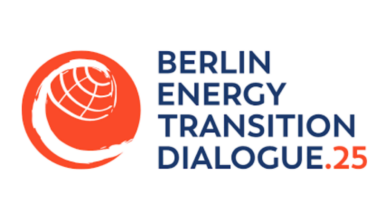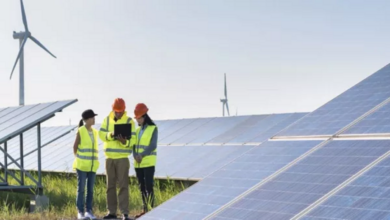
The urgent need to address climate change has placed the Global Energy Transition at the center of international discourse. This transformation from fossil fuels to renewable energy sources is reshaping how countries produce and consume energy. Among the nations taking bold steps forward, Tunisia stands out with its ambitious goals and innovative initiatives.
Global Advancements in Renewable Energy
Worldwide, renewable energy technologies such as solar and wind power are seeing unprecedented growth. The International Energy Agency (IEA) predicts that by 2030, renewables will dominate the global power mix, with solar photovoltaic (PV) systems set to generate more electricity than entire national power systems do today. This shift is driven by the dual goals of reducing carbon emissions and fostering economic growth through green jobs.
Challenges in the Energy Transition:
Despite significant progress, the global energy transition faces numerous challenges. The increasing demand for electricity, fueled by advancements in digital technologies and artificial intelligence, often leads to greater reliance on fossil fuels. This trend underscores the need for faster deployment of clean energy solutions to meet rising energy needs without exacerbating environmental issues.
Tunisia’s Renewable Energy Ambitions:
Tunisia is making notable strides in its energy transition. The country aims to increase the share of renewable energies in its energy mix to 50% by 2035 and achieve carbon neutrality by 2050. Key projects, such as a 100 MW photovoltaic plant in Kairouan and the Prosol initiative promoting domestic solar energy production, highlight Tunisia’s commitment to sustainable energy.
The Ministry of Youth and Sports has launched several projects to enhance energy efficiency in public institutions, reflecting a broader national effort to reduce energy consumption and promote sustainability. International cooperation, including partnerships with the World Bank and the International Finance Corporation, is bolstering Tunisia’s renewable energy investments.
The Road Ahead: Innovation and Collaboration:
Innovation and international collaboration are crucial for overcoming the challenges of the energy transition. Tunisia’s initiatives, such as green innovation and energy equity showcased at international forums, emphasize the potential for collaborative efforts to drive sustainable development. Partnerships between corporations and humanitarian organizations demonstrate how clean energy can address both environmental and social challenges.
Future Prospects and Analytics:
Looking ahead, the continued commitment to innovation, policy support, and investment in clean energy technologies will be essential. Tunisia’s journey provides valuable insights for other nations aiming to transition to sustainable energy. The integration of renewable energy sources, coupled with improved energy efficiency and international cooperation, will play a pivotal role in shaping a greener and more sustainable future.
Conclusion of the Global Energy Transition:
The global energy transition is a complex and multifaceted process. Tunisia’s proactive approach exemplifies how countries can navigate the challenges, and leverage opportunities in this critical area. By fostering innovation, increasing investments, and strengthening international partnerships. Tunisia and the world can pave the way for a sustainable energy future.



